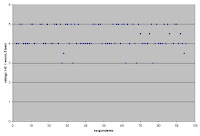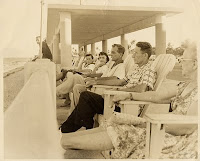Regular post-op to ensure growth
I’m one of those who loves the post-op analysis. It’s great to get feedback, discuss what worked and what didn’t, what were the consequences of our choices, what we can do better next time. It’s a sort of measuring tape.
There are all sorts of post-op analyses:
* Feedback: Anytime I give a presentation, lead a gathering, or host an event, I and my team seek feedback in order to hear the insights of those who took time out of their busy schedule to be a part. A few varieties to collect feedback:
Evaluation: A brief evaluation sheet given at the close of the gathering invites thoughts while everything is fresh.
Poll: Whether informal in person or more formalized, a simple query of why did you come, what did you think, how did you find us, can be a huge help to you and does not present any inconvenience to your participants.
Recap: Asking participants to recap or boil-down what they’ve experienced into a brief statement can alert you to the take-away message that was, in actuality, taken away. A facilitator may think that they relayed the information or experience oh-so-clearly; but if the participants absorbed another message, therein lies the reality of the event.
QA: The Ten-Minute Trainer gives a great suggestion to elicit questions from participants as a barometer of what they’ve learned and what confusion still lingers. It can be as easy as queries scribbled on index cards during a break, with a quick perusal by the facilitator, prepared to address anything necessary immediately following the break.
Every once in a while, we’re also able to initiate feedback from those who chose not to take time out of their schedule – also valuable because we see whether there was a fault in our planning: was our marketing not catchy, was our schedule or venue inconvenient, was there a more attractive competing gathering?
Cautionary note: With any feedback, there is always the human element to be considered. That is, people are people, and sometimes their criticism or praise is less based in substantive reflection and more resulting from a bad day or a repressed memory resurfaced. A couple friends and I were talking last week: Kelli’s advice is to give less weight to the overly, extreme feedback in the positive or negative, relying more on the rest. It’s a sort of bell curve, I guess.
There are all sorts of post-op analyses:
* Feedback: Anytime I give a presentation, lead a gathering, or host an event, I and my team seek feedback in order to hear the insights of those who took time out of their busy schedule to be a part. A few varieties to collect feedback:
Evaluation: A brief evaluation sheet given at the close of the gathering invites thoughts while everything is fresh.
Poll: Whether informal in person or more formalized, a simple query of why did you come, what did you think, how did you find us, can be a huge help to you and does not present any inconvenience to your participants.
Recap: Asking participants to recap or boil-down what they’ve experienced into a brief statement can alert you to the take-away message that was, in actuality, taken away. A facilitator may think that they relayed the information or experience oh-so-clearly; but if the participants absorbed another message, therein lies the reality of the event.
QA: The Ten-Minute Trainer gives a great suggestion to elicit questions from participants as a barometer of what they’ve learned and what confusion still lingers. It can be as easy as queries scribbled on index cards during a break, with a quick perusal by the facilitator, prepared to address anything necessary immediately following the break.
Every once in a while, we’re also able to initiate feedback from those who chose not to take time out of their schedule – also valuable because we see whether there was a fault in our planning: was our marketing not catchy, was our schedule or venue inconvenient, was there a more attractive competing gathering?
Cautionary note: With any feedback, there is always the human element to be considered. That is, people are people, and sometimes their criticism or praise is less based in substantive reflection and more resulting from a bad day or a repressed memory resurfaced. A couple friends and I were talking last week: Kelli’s advice is to give less weight to the overly, extreme feedback in the positive or negative, relying more on the rest. It’s a sort of bell curve, I guess.
Sample feedback charts - click chart to enlarge image.
This first chart represents feedback on a scale of 1-5 (5 best, 1 worst) - the vast majority of respondents offered ratings of 4 and 5, with a handful of 3's. A rather uniform response.
The second chart represents feedback on a scale of 1-10 (10 best, 1 worst) - with a considerable quantity of 10 ratings, and a handful of 5's as well. Whereas a strong majority of respondents raved, there was a substantial segment who had not been reached. (Incidentally, the single zero rating is a mistake in the chart.)

* Direct communication: You know I’m an advocate of speaking directly. Former GE head Jack Welch and his hugely popular work on leadership, Winning, stress the importance of regular honest, direct performance reviews. Kenneth Blanchard & Spencer Johnson’s One Minute Manager, the twenty-five year hit management title emphasize timely, brief coaching moments.
* Sickness: Maybe this one feels counter-intuitive, but sickness is a wonderful litmus test for how we’re leading our lives. In general I keep a balanced life, and those few times I fall ill remind me to take a step back and look.
So to sum up, conducting a post-op offers a great return on investment (ROI). It’s well worth your time. Take a moment, reflect and grow.



Comments
Post a Comment